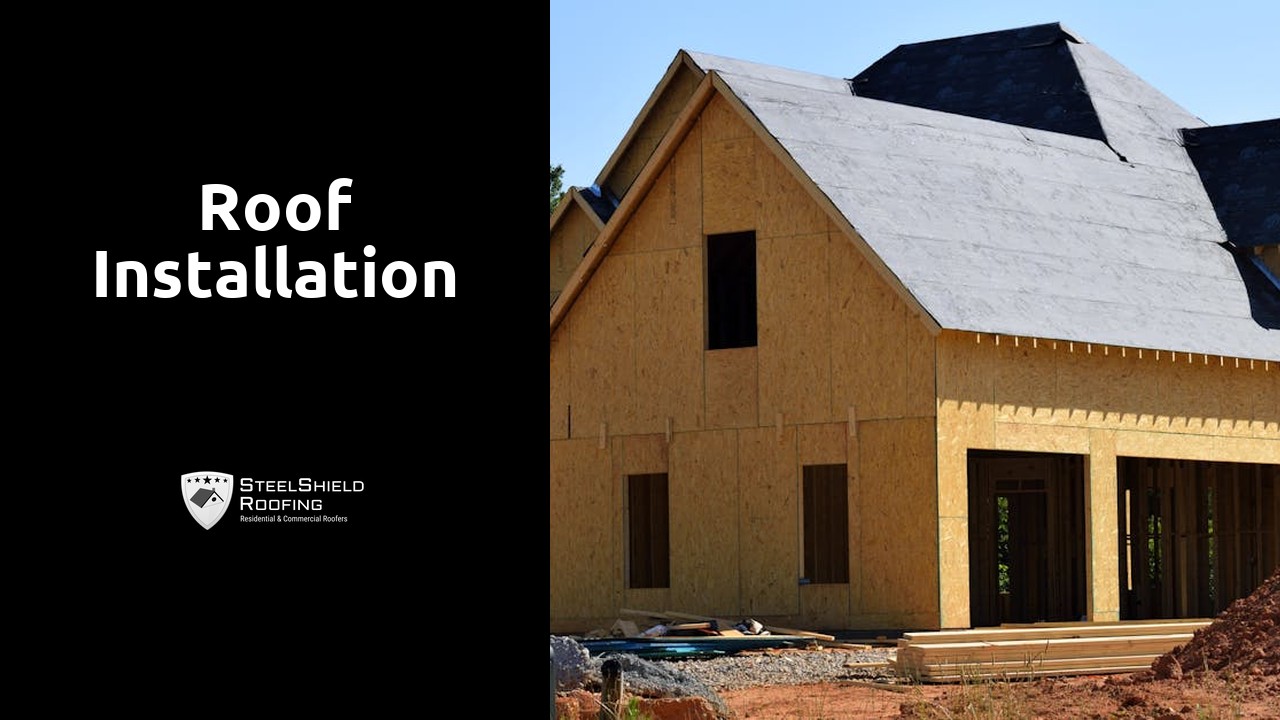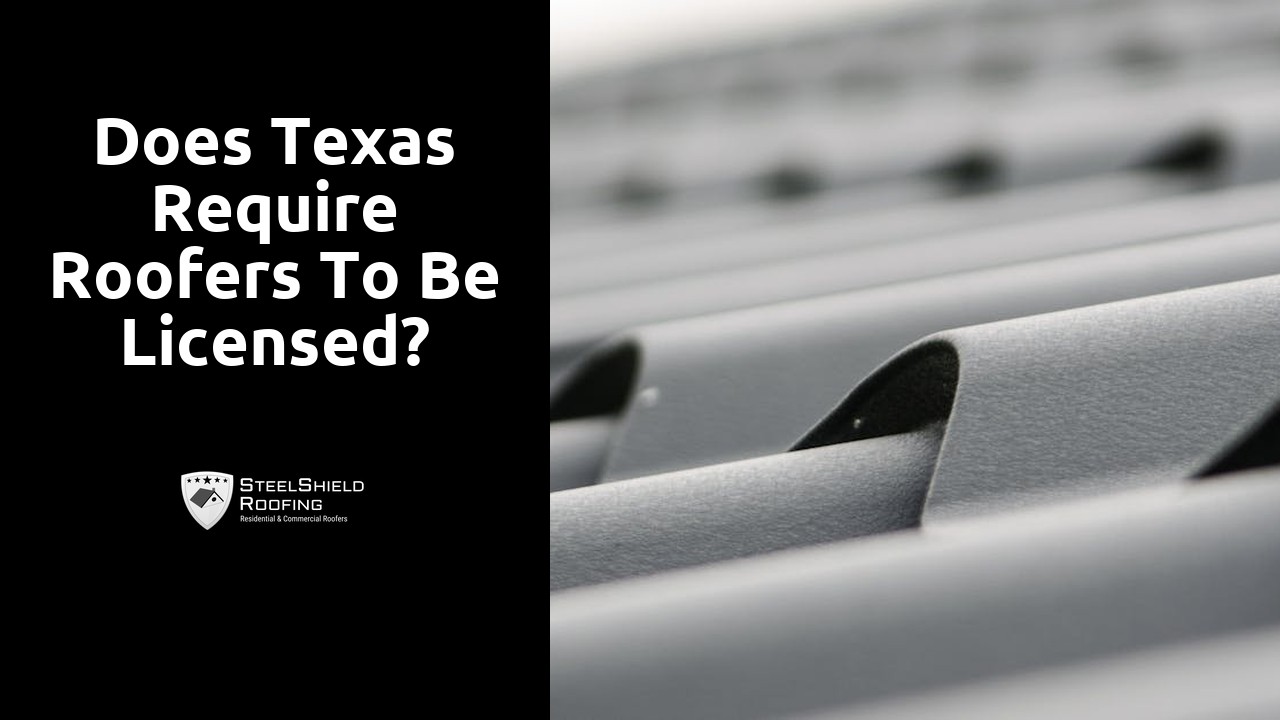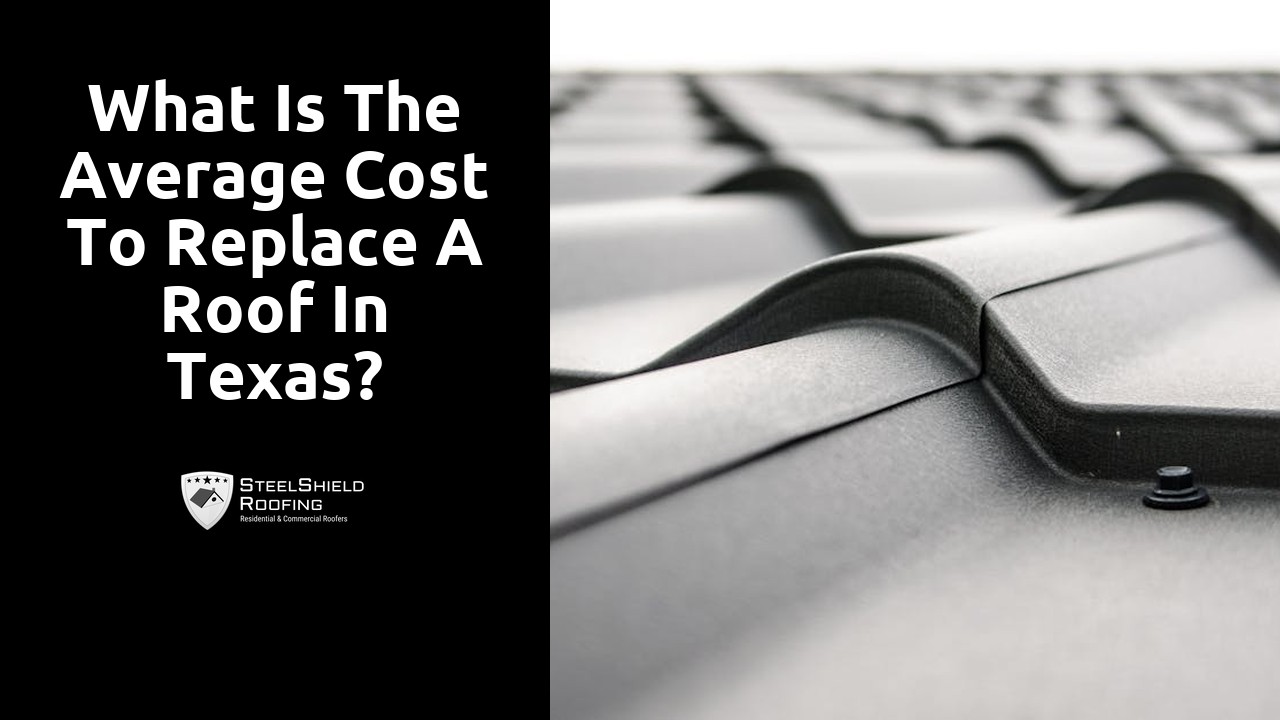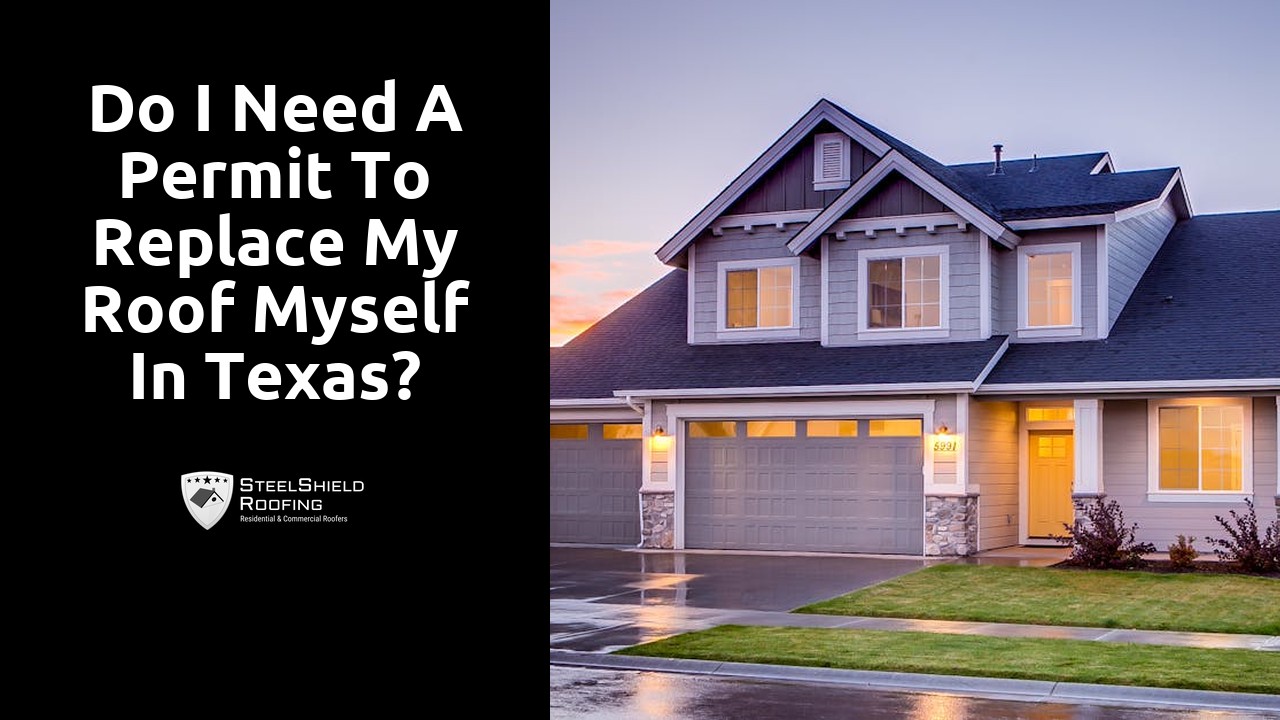
Roof installation
Table Of Contents
SteelShield Roofing Houston offers top-notch roof installation services in the greater Houston area. Our team of experienced professionals are skilled in all aspects of roof installation, from shingle roofs to metal roofs. We take pride in providing high-quality materials and workmanship to ensure that your new roof is not only durable and long-lasting, but also visually appealing. Our commitment to customer satisfaction means that we work closely with you throughout the entire installation process to ensure that your needs and preferences are met. When you choose SteelShield Roofing Houston for your roof installation needs, you can trust that you are getting a reliable and expert team that will get the job done right the first time.
Roof Installation Timeline and Expectations
When planning for a roof installation project, it is essential to have a clear understanding of the timeline and expectations involved. Typically, the timeline for roof installation can vary depending on various factors, such as the size of the roof, the materials being used, and the weather conditions. On average, a roof installation project can take anywhere from a few days to a couple of weeks to complete.
It is important to communicate effectively with your roofing contractor to ensure that both parties are on the same page regarding the timeline and expectations. Setting clear deadlines and discussing any potential delays upfront can help to streamline the installation process and minimize any unexpected setbacks. By establishing a clear plan and open communication from the start, you can help to ensure a smooth and efficient roof installation experience.
See here for more great tips.
Potential Delays
When it comes to roof installations, delays can be frustrating and unexpected, causing inconvenience for both homeowners and contractors. One common reason for delays is unfavorable weather conditions. Rain, high winds, or extreme temperatures can hinder progress and pose safety risks for workers. In these cases, it is essential to prioritize safety over speed and wait for suitable weather to resume work effectively.
Another potential cause for delays is the availability of materials. Sometimes, there may be a shortage of specific roofing materials due to high demand or supply chain disruptions. This can lead to project delays as contractors wait for the necessary materials to be restocked. To avoid such delays, it is advisable to work with reputable suppliers and plan ahead to ensure that all required materials are readily available before starting the installation process.
Roof Maintenance Tips for Longevity
To ensure the longevity of your roof, it is essential to prioritize regular inspections. By conducting frequent evaluations, you can catch any potential issues early on before they escalate into more significant problems. This proactive approach not only helps in maintaining the structural integrity of your roof but also saves you from costly repairs in the long run. It is recommended to schedule professional inspections at least once a year, especially after severe weather conditions such as storms or heavy snowfall.
Additionally, implementing a routine maintenance plan can greatly extend the lifespan of your roof. Simple tasks such as keeping gutters clean, removing debris, and trimming overhanging tree branches can prevent water damage and improve the overall health of your roof. By staying proactive and attentive to the needs of your roof, you can ensure its longevity and protect your investment for years to come.
Regular Inspections
Regular inspections are essential for ensuring the longevity and durability of your roof. By conducting routine checks, you can identify any potential issues early on and address them before they escalate into costly problems. Inspections allow you to assess the overall condition of your roof, including signs of wear and tear, damage, or any areas of concern that may need immediate attention.
It is recommended to schedule inspections at least twice a year, typically in the spring and fall, to coincide with the changing seasons. During these inspections, pay close attention to the shingles, flashings, gutters, and any potential areas where water can penetrate. Additionally, inspect the attic for signs of leaks, moisture, or mold, as these can indicate underlying roof issues that need to be addressed promptly. Regular inspections, when done consistently and thoroughly, can help extend the lifespan of your roof and prevent major repair costs down the line.
Cost Breakdown of Roof Installation
Roof installation costs typically include various expenses such as labor, materials, permit fees, and equipment rentals. Labor costs can be a significant part of the overall budget, varying depending on the size of the project and the complexity of the installation process. Skilled labor is essential for ensuring a high-quality roof installation that will last for years to come. Material costs play a crucial role in the budget breakdown, with factors like the type of roofing material, size of the roof, and any additional features impacting the overall cost. High-quality materials may come with a higher initial price tag but can result in a more durable and long-lasting roof.
Permit fees are often required for roof installations to ensure that the work complies with local building codes and regulations. These fees can vary based on the location and the scope of the project. Equipment rentals, such as cranes or scaffolding, may also be necessary for certain installations, adding to the overall cost. It's important for homeowners to factor in all these costs when budgeting for a roof installation project to avoid any unexpected financial surprises along the way.
Material Expenses
When it comes to the material expenses for a roof installation project, the costs can vary depending on several factors. The type of roofing material chosen plays a significant role in determining the overall cost. Common roofing materials include asphalt shingles, metal, tile, and wood shakes, each with its own price point and installation requirements. Additionally, the size and slope of the roof, as well as any unique architectural features, can impact the material expenses.
Aside from the actual roofing material, other costs to consider are underlayment, flashing, vents, and any additional accessories needed for proper installation. It is essential to work closely with your roofing contractor to understand the breakdown of material expenses and ensure that the chosen materials align with your budget and aesthetic preferences. By carefully considering all material costs upfront, you can make informed decisions and avoid unexpected financial surprises during the roof installation process.
FAQS
How long does a typical roof installation take?
The timeline for roof installation can vary depending on the size of the roof and the complexity of the project. On average, a residential roof installation can take anywhere from a few days to a couple of weeks.
What are some potential delays that could occur during roof installation?
Some potential delays during roof installation can include inclement weather conditions, supply chain issues, unexpected structural issues, or permitting delays.
How often should I inspect my roof for maintenance?
It is recommended to inspect your roof at least twice a year, ideally in the spring and fall. Additionally, you should inspect your roof after severe weather events such as storms or high winds.
What are some tips for maintaining the longevity of my roof?
To prolong the life of your roof, it is important to keep gutters clean, trim overhanging branches, inspect for damage regularly, ensure proper ventilation in the attic, and address any issues promptly.
How much does roof installation typically cost?
The cost of roof installation can vary depending on factors such as the size of the roof, the materials used, the location, and any additional features like skylights or chimneys. It is recommended to get multiple quotes from reputable contractors to get an accurate cost breakdown. (Note: These FAQs are intended to provide general information and should not be considered as professional advice. It is recommended to consult with a roofing professional for specific guidance on your individual roof installation project.)


